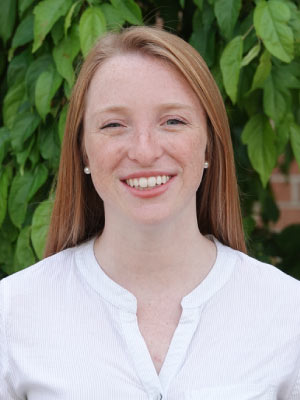
Nelson Institute Environment and Resources (E&R) PhD student Audrey Stanton has written a guest column for GradConnections Weekly, the graduate student newsletter.
Tips for Grads: Making every day Earth Day
April is full of important days, from National Library Week (April 3 through 9) and Tax Day (April 18) to National Garlic Day (April 19) and my personal favorite – Earth Day, April 22! Earth Day was inaugurated in 1970 by the late Wisconsin senator, Gaylord Nelson, as an environmental teach-in. Today, climate change represents one of the most challenging environmental issues we face. The impacts of climate change are disproportionate for different populations and extend into social and economic realms. Though individual action alone will not solve climate change, we can each encourage collective action and systemic change. Taking individual action may also be helpful for addressing eco-anxiety.
For folks with the capacity to address their personal climate change impact, professor Mike Berners-Lee of Lancaster University’s Lancaster Environment Centre recommends “picking your battles” to get the best return for your effort (How Bad Are Bananas, 2020). Here are some high-impact ideas, adapted from Berners-Lee’s work:
Travel
- Consider taking public transportation, biking, or walking instead of driving a car.
- Limit air travel when possible, opting for traveling by train or taking advantage of virtual options.
Food
- “Eat food. Not too much. Mostly plants” (Michael Pollan, Food Rules, 2009). The lower on the food chain, the better.
- Aim for local and seasonal food when possible and affordable. Skip air-freighted, greenhouse grown, and/or packaged foods.
- Avoid wasting food and repurpose your food scraps.
Home
- Opt-in to local, renewable energy from your utility, if finances allow.
- Upgrade to LEDs from Focus on Energy’s no-cost energy efficiency packs.
Big Picture
- Speak with loved ones about climate change and connect it to their lives. Sometimes the most effective approach is to illuminate local, relatable effects.
- Contact your representatives and elected officials to advocate for climate action.
- Support campus sustainability: higher education institutions are uniquely positioned to further climate research and promote climate action.
- Read a previous Tips for Grads from Olivia Gacka.
- Learn more about the UW–Madison Office of Sustainability.
Looking for more information specific to UW–Madison? Check out the Campus Sustainability Map. Want to connect with the Office of Sustainability? Join us for Earth Week events, follow us on social media at @SustainUW, and sign up for our monthly e-newsletter.
Learn more about Environment and Resources and how you can support the program.
Tips for Grads is a professional and academic advice column written by graduate students for graduate students at UW–Madison. It is published in the student newsletter, GradConnections Weekly.